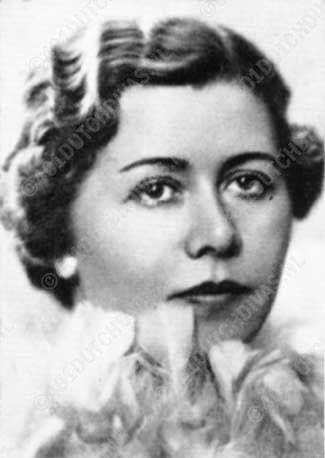Corry Bijster
 Cornelia Antonia (Corry) Bijster was born on january 15 1906 in Schoten (now Haarlem). She took singing lessons from Dora Zweers-de Louw in Amsterdam. She made her debut in concert in 1933. Initially she foremost sang Lieder and oratoria in concert halls and she became a renowned performer with the Dutch National Radio. Famous was her 1941 radio appearance in the title role of Richard Strauss Daphne. During World War II she sang with the Dutch Chamber Opera ensemble. During the occupation she also sang in the Dutch Vocal Quarted that was founded in 1942 by Laurens Bogtman, together with Roos Boelsma and Frans Vroons. Corry Bijster gave concerts in The Netherlands, Belgium, France, Germany and Switserland. Post 1946 she also appeared with the Dutch National Opera. She sang foremost Mozart roles and enjoyed great succes in Glyndebourne 1956 as Konstanze (Entführung aus dem Serail).
Cornelia Antonia (Corry) Bijster was born on january 15 1906 in Schoten (now Haarlem). She took singing lessons from Dora Zweers-de Louw in Amsterdam. She made her debut in concert in 1933. Initially she foremost sang Lieder and oratoria in concert halls and she became a renowned performer with the Dutch National Radio. Famous was her 1941 radio appearance in the title role of Richard Strauss Daphne. During World War II she sang with the Dutch Chamber Opera ensemble. During the occupation she also sang in the Dutch Vocal Quarted that was founded in 1942 by Laurens Bogtman, together with Roos Boelsma and Frans Vroons. Corry Bijster gave concerts in The Netherlands, Belgium, France, Germany and Switserland. Post 1946 she also appeared with the Dutch National Opera. She sang foremost Mozart roles and enjoyed great succes in Glyndebourne 1956 as Konstanze (Entführung aus dem Serail).
Text: JL/RS
Special thanks to: Cees Camel
From 1937 to 1959 she appeared countless times with the Concertgebouw Orchestra. She appeared there with conductors such as Hubert Cuypers (Ein Deutsches Requiem, together with Hermann Schey, 1937); Anthon van der Horst (Ein Deutsches Requiem, cantates by Bach, oa. with Max Kloos, 19838/39) and under Heinz Tietjen for the Wagnervereeniging (Walküre, 1939). The cast of this Walküre was stellar: Franz Völker (Siegmund), Ludwig Hofmann (Hunding), Jaro Prohaska (Wotan), Maria Müller (Sieglinde), Marta Fuchs (Brünnhilde), Margarete Klose (Fricka), Augusta Reclaire (Gerhilde), Greet Koeman (Helmwige), Ans Stroink (Waltraute), Corry Bijster (Ortlinde), Judith Toff (Siegrune), Jo van de Meent-Walter (Schwertleite), Ria Focke (Grimgerde) and Maartje Offers (Rossweisse).
Furthermore she sang under such conductors as Johannes den Hertog, Ernest Ansermet, Eduard van Beinum, Willem Mengelberg, Willem van Otterloo, George Robert, Jan van Epenhuijsen, Jan Koetsier, Rafael Kubelik, Josef Krips, Paul Klecki and Karl Böhm, performing in a.o. Beethoven's 9th, Diepenbrock's Te Deum (1946), Haydn's Die Jahreszeiten, Bach's Matthäus-Passion, Bruckner's Mis nr. 3 in f kl.t en diens Te Deum (1944), Rudolf Mengelberg's Missa pro Pace, but also in works such as Le Martyre de Saint-Sébastien (Debussy), 'Der Hirt auf dem Felsen' (1943, Schubert), Die Zauberflöte van Mozart (1940) and Fidelio (1940, Beethoven).
Bijster was multiple times juror in the International Vocal Competition 's-Hertogenbosch. Following her career as a soprano she became a vocal teacher in her city of birth Haarlem. She passed away on December 28 1995 in Laren
Bijster recorded for the illustrious and obscure MMS label Pamina in Die Zauberflöte, Bach's Mattheus Passion en Verdi's Requiem. On Philips she appeared in Stravinsky's Les Noces and in Mahler's 'Symphony Nr. 8'.




